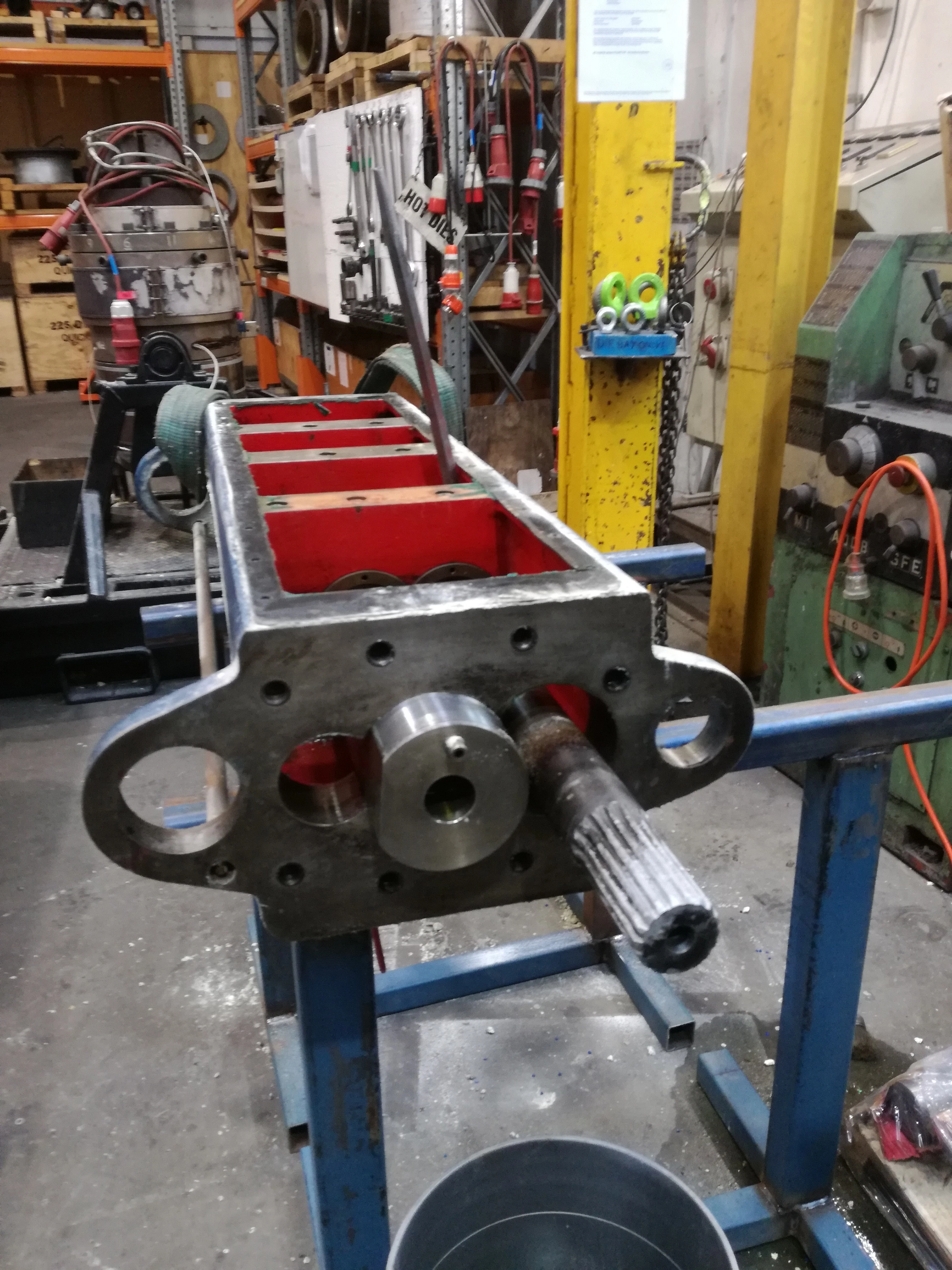Christchirch, New Zealand
Peter Peart is the Maintenance Engineer at Packtech Moulding, an injection moulding company outside of Christchurch, New Zealand. Packtech Moulding makes packaging for the food industry, primarily for companies in New Zealand and Australia companies. Peter has been in maintenance for over 50 years, getting his start early by working with his grandfather in his engineering workshop. Might need to check the New Zealand labor laws on that one…
In reflecting on how his work has an impact, Peter says,
“If I don’t do my job, there’s a good chance that production will stop in the factory. There will be more downtime, repairs will be more expensive. Whatever I do keeps people working, I guess.
All the people that run the machines, the people that make the most money for the factory is the people who make the product. The people who pack it into a truck. The people who load it onto the truck. Those are the people I keep working by continuing to do my job as best as I can.”
Peter Peart, thank you for everything you do. Your life-long experience in the maintenance industry has given you invaluable insights, and candor and authenticity when speaking about them is appreciated.
How did you get started in maintenance?
I grew up in New Zealand and started working in my grandfather’s engineering workshop as long as I can remember. It’s probably been 50 years now.
I joined NZ Army at 16 years old as a Regular Force Cadet, which is similar to a military school. I joined with my class of 100 other young guys, and we all had training in doing different trades. I spent 15 years in both the New Zealand and Australian Armies. I worked on tanks and artillery and general equipment, doing everything the motor mechanics weren’t. I had an apprenticeship during my service, where my parents and my master basically had a contract that I would behave myself.
Since then, I’ve worked in all sorts of industries – automotive parts, military, equipment servicing, manufacturing, wood working cutting tools, cable making, PVC pipes – now I’m in injection moulding.
I love what I do because you always finish a job; you don’t do part of a job, you do the whole job start to finish. If something is broken down, you go to it, fix it, and walk away when it’s working again. You’ve achieved something. You can see the end result of your work, and say, “Oh yeah, I have made that from scratch, I’ve created something.” You have the opportunity to take someone’s (typically vague) idea and turn it into a reality for them, create something that does what they want and make it happen for them.
What is one of your proudest achievements?
Ooh, I have a couple. First, surviving past 60 and making my way in the world. Haven’t been to jail yet.
Another one is being a good tradesman, being complimented for my work. In my last job, we were made redundant so I applied for new jobs. I got a phone call from one company and the man on the other end of the line said, “You don’t know me but I’d like to offer you a job.” I was shocked and said, “But you don’t even know me, you’ve just seen my CV.” He replied, “You worked with my dad about 10-15 years ago. I saw that you had worked at the same company as my dad, so I asked if he knew you. My dad told me to give you a job, sight unseen.” And I’m just really proud of that.
Finally, I’m proud to say that I’ve never been out of work unless I chose to be out of work. Through all the ups and downs over the last 50 years, I never was unemployed unless I wanted to be.
What is one thing you wish people knew about your job?
I have a few things. For one, there’s no such thing as a five minute job. It’ll take me five minutes to find the tools.
Next is about preventive maintenance. The biggest part of my role now is preventive maintenance. People say, “Oh you’re just cleaning it, you’re just lubricating it.” Well, I’m not – I’m going through machines carefully and looking at things, finding places where a breakdown is inevitable. For instance, finding a crack in a belt. That belt was working fine, however, if I spend 15 minutes changing that belt now, sure that’s an extra 15 minutes, but it’s certainly a lot less time than if that machine had broken down. If it broke down, it probably would have happened overnight when no one was here, we would’ve lost production time instantly, and probably spend even more time and money finding the cause of the breakdown.
By keeping an eye on things with preventive maintenance, you save yourself so much in the long run. This is something a lot of maintenance management personnel might not see because they consider maintenance to just be a cost associated with their company.
Finally, and perhaps most importantly, I think people need to really understand that there’s more to being a tradesman than being a builder. A trade is an excellent alternative to a university degree, and just because you don’t have a university degree doesn’t mean you have a lesser education it only means you have a different one.
A qualified tradesmen is as well educated as any university graduate. It is truly just a different education – more hands-on and practical learning. The world needs both in equal measure. We cannot survive with only university graduates and we cannot survive with only tradesmen. My advice is to consider both carefully.


